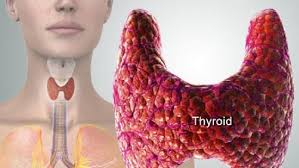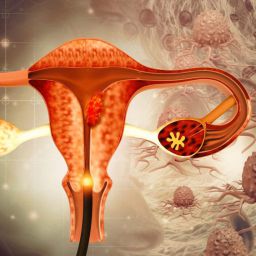
Thyroid Function and Health
The thyroid gland regulates metabolism, energy production, and the body’s temperature. When the thyroid is not functioning properly, various symptoms and health issues can arise, such as weight gain or loss, fatigue, hair loss, and difficulty concentrating.
There are several factors that can influence thyroid health, and diet plays a key role. Nutrients such as iodine, selenium, zinc, and iron are essential for thyroid hormone production. However, certain foods contain compounds that may interfere with thyroid function, especially in individuals with thyroid conditions. Understanding these foods can help mitigate their impact on thyroid health.
1. Soy Products

Soy is a commonly consumed food in various forms, such as tofu, soy milk, edamame, and tempeh. While soy has several health benefits, it is important for individuals with thyroid issues to consume it with caution. Soy contains goitrogens, which are substances that can interfere with thyroid hormone production. These compounds inhibit the absorption of iodine, a critical element for thyroid function. Iodine deficiency can exacerbate thyroid problems, especially in those with pre-existing thyroid conditions like hypothyroidism.
Although moderate consumption of soy is unlikely to cause issues for individuals with healthy thyroids, people with thyroid problems—especially hypothyroidism—should limit their intake. Cooking soy can reduce its goitrogenic effects, but it is still advisable to be mindful of how much is consumed.
2. Cruciferous Vegetables
Cruciferous vegetables, such as broccoli, cauliflower, kale, Brussels sprouts, and cabbage, are often considered healthy foods due to their high vitamin, mineral, and antioxidant content. However, these vegetables also contain goitrogens that can potentially disrupt thyroid function when consumed in large quantities, especially in individuals with iodine deficiencies.
The goitrogens in cruciferous vegetables, specifically glucosinolates, can block the uptake of iodine by the thyroid gland, leading to hypothyroidism in susceptible individuals. Cooking these vegetables significantly reduces the concentration of goitrogens, so lightly steaming or cooking them can help mitigate their negative impact on the thyroid.
While eating cruciferous vegetables in moderation is generally safe and beneficial for most people, those with existing thyroid conditions should monitor their intake and ensure they are getting adequate iodine in their diet.
3. Gluten-Rich Foods
Gluten is a protein found in wheat, barley, rye, and other grains. While gluten is not inherently harmful to the thyroid, individuals with autoimmune thyroid disorders, such as Hashimoto’s thyroiditis (a common cause of hypothyroidism), may be more susceptible to gluten’s adverse effects. In autoimmune thyroid conditions, the body’s immune system mistakenly attacks the thyroid gland, and gluten can trigger or worsen this immune response in some people.
For individuals with thyroid issues, particularly autoimmune conditions, gluten intolerance may exacerbate inflammation and worsen thyroid function. Studies have shown that a gluten-free diet may help reduce the risk of autoimmune thyroid conditions and improve thyroid health. If you suspect gluten sensitivity or have been diagnosed with an autoimmune thyroid disorder, it may be beneficial to consult with a healthcare professional about reducing gluten in your diet.
4. Processed Foods and Trans Fats
A diet high in processed foods and trans fats can lead to a variety of health issues, including thyroid dysfunction. These foods often contain refined sugars, unhealthy fats, and preservatives that can contribute to inflammation, oxidative stress, and insulin resistance—factors that can negatively impact thyroid function. Trans fats, commonly found in processed snacks, baked goods, and fast foods, have been linked to increased levels of inflammation in the body and may impair the thyroid gland’s ability to produce hormones effectively.
In addition, excessive sugar intake can lead to insulin resistance, which can disrupt the body’s metabolism and increase the risk of thyroid dysfunction. To protect thyroid health, it is essential to reduce the intake of processed foods and trans fats and focus on a diet rich in whole foods, lean proteins, healthy fats, and plenty of fruits and vegetables.
5. Sugar and Refined Carbohydrates

A high intake of sugar and refined carbohydrates can have a detrimental effect on thyroid health. Refined carbohydrates, found in foods such as white bread, pasta, and sugary snacks, cause blood sugar spikes and increase the risk of developing insulin resistance, which can interfere with thyroid hormone production.
In addition to impairing insulin sensitivity, high sugar consumption may lead to chronic inflammation, which can worsen thyroid dysfunction. High blood sugar levels can also increase the production of stress hormones, such as cortisol, which can suppress thyroid function. To support thyroid health, individuals should limit the intake of refined sugars and carbohydrates and focus on consuming complex carbohydrates, such as whole grains, legumes, and vegetables.
6. Dairy Products
Dairy products, including milk, cheese, and yogurt, are a common part of many people’s diets. However, they can be problematic for individuals with thyroid conditions, particularly those with Hashimoto’s thyroiditis. Dairy contains lactose and proteins that can cause inflammation in some individuals, potentially exacerbating thyroid dysfunction.
Some people with thyroid conditions may have difficulty absorbing certain nutrients from dairy products, particularly calcium and vitamin D. High calcium intake can interfere with the absorption of thyroid medication, making it less effective. If you have thyroid problems and rely on dairy for calcium, consider alternative sources such as fortified plant-based milk, leafy green vegetables, and almonds.
7. Excessive Iodine Intake
Iodine is an essential nutrient required for thyroid hormone production. However, excessive iodine intake can also be harmful, especially for individuals with certain thyroid disorders. While iodine deficiency can lead to hypothyroidism, too much iodine can trigger thyroid dysfunction and cause issues like thyroiditis, hyperthyroidism, or goiter (enlargement of the thyroid gland).
Excessive iodine is typically found in certain seafood, iodized salt, and certain dietary supplements. For most individuals, a normal intake of iodine is beneficial, but people with thyroid conditions, particularly autoimmune thyroid disorders, should avoid excessive iodine. Consulting with a healthcare provider or nutritionist can help ensure you’re consuming the right amount of iodine for optimal thyroid function.
8. Alcohol
Alcohol consumption, particularly in excessive amounts, can interfere with thyroid function and disrupt hormone production. Alcohol can impair the liver’s ability to metabolize thyroid hormones, resulting in reduced levels of active thyroid hormones in the bloodstream. In addition, excessive alcohol consumption may exacerbate the symptoms of hypothyroidism, such as fatigue, depression, and weight gain.
Moderate alcohol consumption may be acceptable for some individuals with thyroid conditions, but heavy drinking or regular binge drinking should be avoided to protect thyroid health. It is essential to maintain a healthy lifestyle that includes a balanced diet, regular exercise, and limited alcohol intake for optimal thyroid function.
A Balanced Diet for Thyroid Health
Maintaining a healthy thyroid is essential for overall well-being, and diet plays a significant role in supporting thyroid function. While there are certain foods—such as soy, cruciferous vegetables, gluten-rich foods, and processed items—that can interfere with thyroid health, a balanced diet can help maintain optimal thyroid function and prevent complications.
By reducing the intake of goitrogenic foods, processed items, and alcohol, and by focusing on nutrient-dense foods that support thyroid health, individuals can protect their thyroid and overall metabolic health. Additionally, it is important to maintain a diet rich in iodine, selenium, zinc, and vitamin D, which are essential for thyroid hormone production.
If you suspect thyroid issues or have been diagnosed with a thyroid condition, it is advisable to consult with a healthcare provider or nutritionist to develop a personalized dietary plan that supports your thyroid health. With the right diet, you can help your thyroid function optimally, ensuring a healthier, more balanced life.















